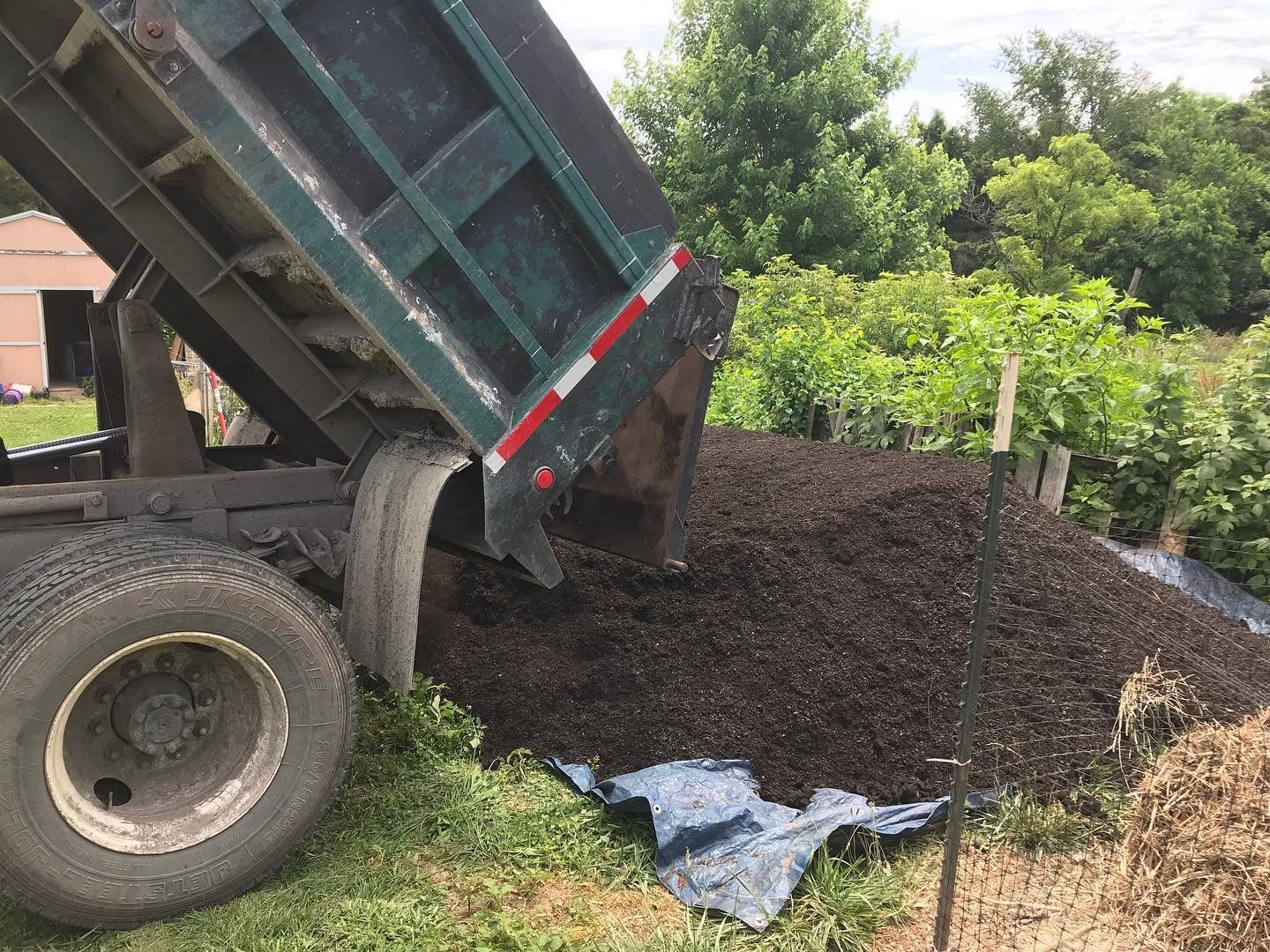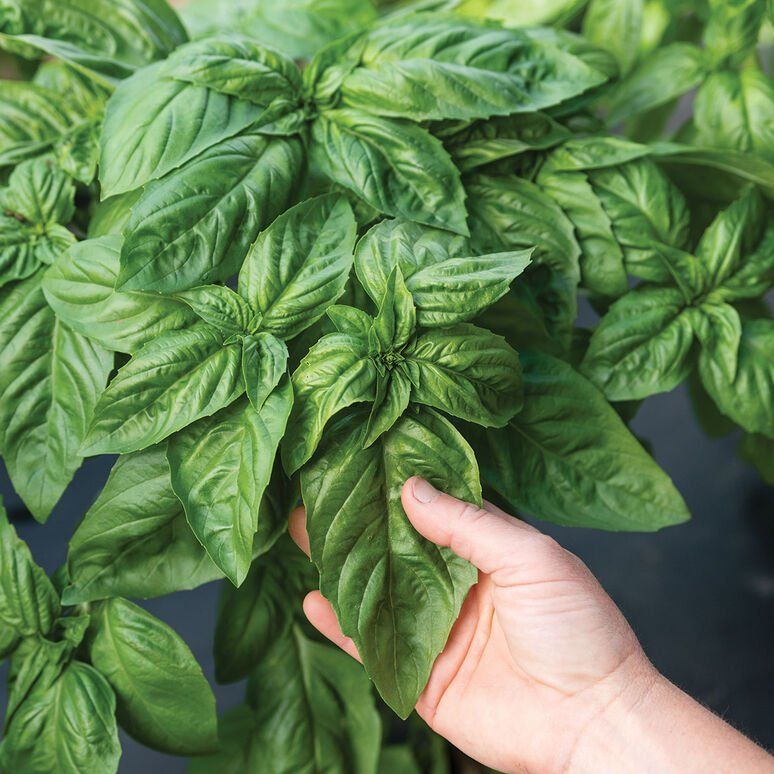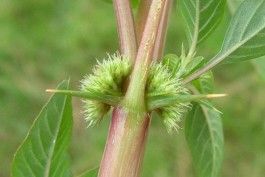There is a saying in permaculture that there’s no such a thing as weeds but crops in the wrong spot. And, indeed, the majority of so-called weeds play very important roles in our system. But among those weeds there is a particular summer one that I admit to greatly dislike: the obnoxious spiny pigweed (Amaranthus spinosus). This variety of the amaranth family grows incredibly fast and produces flower heads with millions of seeds. They root themselves hard in the ground and are hard to pull. Breaking them with hoes does not help much as they regrow in no time. And pulling them requires the use of heavy gloves because they prick—badly. Our strategy is to get them as soon as we see them coming but they are pretty well established in our property and we are going to have to put up with them for years to come. Even so, I’m grateful for pigweed. I see it as a reminder that every day we have to put up with difficult or uncomfortable situations. I take those as moments for spiritual growth and I offer them up. There are much worse things that people have to deal with every day, everywhere, so, as unpleasant as prickly pigweed might be, I feel blessed that I can use that time of pain to pray for those who struggle.

Back to Farm Happenings at Saint Isidore Homestead and Permaculture
One for the Pigweed
Posted on July 9th, 2022 by Pedro Aponte
About the farm

We are a small family farm located in Grottoes, Virginia, serving the city of Harrisonburg and the counties of Rockingham, Augusta, and Greene. We produce high-quality food using sustainable practices and ethical principles of care for the common good. Having witnessed the healing power of good food in dealing with family health issues, we started farming in 2015 in an effort to sharing with others the benefits of fresh, nutritionally-dense food, grown in a clean environment, using integrative agricultural methods. We believe that in order for food to be healthful, the environment in which it grows has to be healthy. To that end, we integrate animal and plant systems in ways that, in their natural interactions, they create an ecological balance leading to abundance and quality.
We grow over 50 different vegetable crops, perennial vegetables and fruits, and raise pastured pork, as well as ducks and chickens, for meat and eggs.
Go to farm profile
We grow over 50 different vegetable crops, perennial vegetables and fruits, and raise pastured pork, as well as ducks and chickens, for meat and eggs.


